Did you have any kidney-friendly foods today? We’re always focusing on eating heart-healthy foods and brain-boosting nutrients. But we hardly talk about kidney-friendly foods until your kidneys are damaged. Each of your kidneys may only be the size of a cell phone but are crucial for filtering waste, regulating blood pressure, and producing hormones.
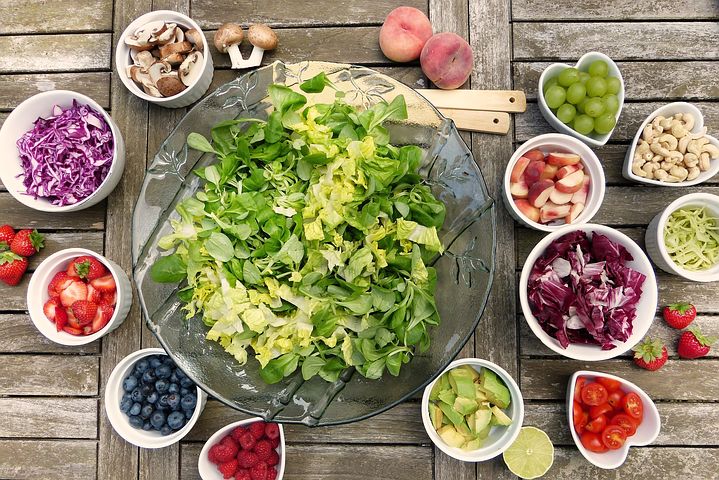
In this article, we’ll discuss foods that help repair your kidneys. Should you be eating berries? What about getting enough greens? Which fruits and protein can help weak kidneys? We’re discussing all that and more.
Believe it or not your kidneys are pretty hard working. They filter around 45 gallons of blood every day. It comes up to half a cup of blood filtration every minute. Impressive isn’t it? But high blood pressure, diabetes, obesity, smoking, and genetics can increase the waste build-up.
Disease starts creeping in when kidneys are not able to function at optimal levels. Chronic Kidney Disease or CKD is very difficult to deal with and affects almost 15% of Americans. A simple modification in your diet can be a huge help for your bean-shaped friends. Doctors call it the renal diet. The general rules are to avoid sodium, potassium, phosphorus, and a few proteins. The requirement for these nutrients will vary drastically for someone undergoing dialysis to a stage one kidney disease patient.
So, be sure to discuss your diet with your doctor first. Coming up is a list of functional foods for your kidneys and it offers several other health benefits, too. We also have a few things you must absolutely avoid. But first, let’s see what you should be eating.
Want to really keep the doctor away?

Then there’s nothing better than a good old apple. They are so refreshing and versatile that you can put them in just about anything. From breakfast pancakes to your overnight oats and apple pies, they make perfectly easy recipes. You can also cut thin apple slices, sprinkle some cinnamon and have it as a crunchy snack. Studies show that apples can reduce the risk of hyperkalemia in CKD.
They are great for relieving constipation, reducing inflammation, and decreasing your chances of cancer and heart diseases. One medium-sized apple with skin will have no sodium, 158 mg of potassium, and 10 mg of phosphorus. When your kidneys are at a risk, try to stay under 2000 mg of sodium per day.
High sodium foods like chips can raise blood pressure making filtration difficult for the kidneys. Replace the quintessential breakfast drink, orange juice with fresh apple juice. It’ll have less potassium and can manage blood sugar levels better in diabetics.
What’s your take on berries?
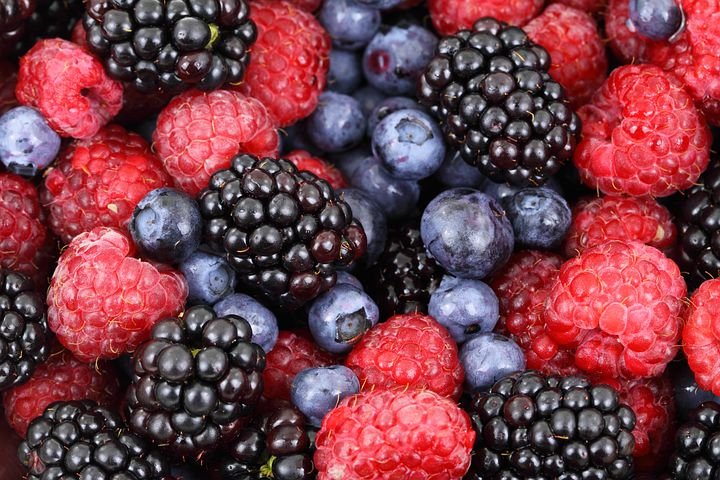
Berries are the most flavorful, juicy pops of color. So what do you pick first? Stick to cranberries, blueberries, raspberries, strawberries, and grapes. Yes, grapes are classified as berries. Studies show that a berry enriched diet could improve renal function in rats.
Cranberries are great for protecting you from gastrointestinal trouble and half a cup of dried cranberries contains 2 mg of sodium, 25 mg of potassium, and 5 mg of phosphorus. Blueberries are bursting with antioxidants, Vitamin C, manganese, and other nutrients that boost immunity and improve bone health. Half a cup of fresh blueberries contains 4 mg of sodium, 65 mg of potassium, and seven mg of phosphorus.
Now, half a cup of fresh raspberries is different from all berries as they contain zero mg of sodium, 93 mg of potassium, and seven mg of phosphorus. They are excellent for neutralizing free radicals and prohibit the growth of tumor forming cells. The naturally sweet and delicious jewel-coloured strawberries contain anthocyanins and ellagitannins. Half a cup of strawberries contains 1 mg of sodium, 120 mg of potassium and 13 mg of phosphorus.
Grapes contain resveratrol, a flavonoid that helps to relax muscles and increase blood flow. If you are undergoing dialysis then grapes are a great way to follow fluid restrictions and stay hydrated. Studies have shown grape seed powder to improve renal failure of chronic kidney disease. Add the berries to your smoothies, salads, or cereals. You can also make purees and sauces.
Did you know canned fruit can actually be great for kidney patients? If it’s difficult finding fresh or frozen fruit go for canned ones. They lower your chances of consuming more potassium. The potassium from the fruit leeches out and gets mixed with water in the can. Just remember to rinse your fruit before eating.
Is your diet missing a good green vibe?
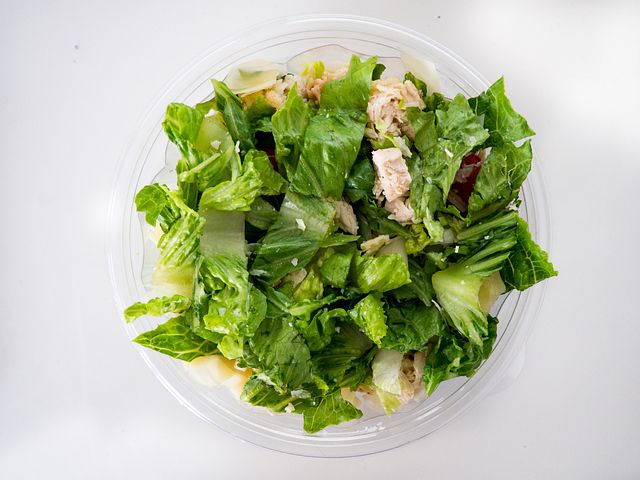
Spinach, kale, green cabbage, celery, and arugula are the top green leafy vegetables that enrich taste and nutrition. Spinach and Kale might be a little steep on potassium. So are most commonly avoided by folks undergoing dialysis. It works fine in moderation for other kidney problems. Your doctor will recommend you have less than 2000 mg of potassium per day.
1 cup of green cabbage contains 13 mg of sodium, 119 mg of potassium and 80 mg of phosphorus. This cruciferous vegetable is essential for getting rid of constipation due to its amazing fiber content. Mix your green juice recipe with some arugula. 1 cup contains 6 mg of sodium, 74 mg of potassium and 10 mg of phosphorus. It has blood pressure-lowering nitrate that can be just the ticket for healthy kidneys.
Celery is an indispensable part of many detox drinks. Studies show that celery offers a full range of health benefits. It is especially known to prevent and protect you from kidney disease. Its fair sodium content may throw you off track from your target. A medium celery stalk contains 32 mg of sodium. So talk to your doctor before having it.
Got lemons on your counter top? Use those!
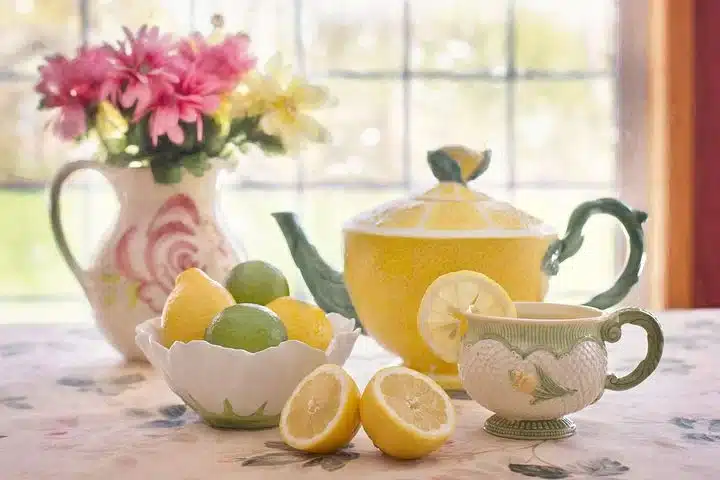
Lemons are a wonderful fruit that have incredible healing powers. Apart from boosting the immune system, lemons contain antibiotic, anticancer and antiseptic properties. They’re the storehouse of Vitamin C, B complex, iron, calcium, magnesium, silicon, copper, and potassium. This fruit increases the levels of citrate. This reduces the pain of kidney stones and even dissolves them quickly.
Let’s look at the stars of the Allium family.
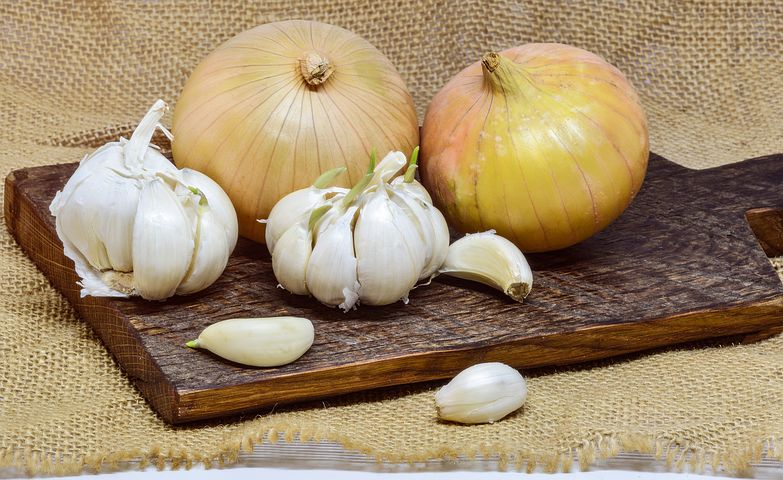
Onions and garlic add fantastic flavor when your food has less salt. French onion soup and garlic knots are not the only ways to have them. You can add onions to your wraps, toasties, burgers, sandwiches, salads, or burritos. The fiber acts as prebiotic and feeds the healthy gut bacteria.
1 small onion contains 3 mg of sodium, 102 mg of potassium, and 20 mg of phosphorus. Weak kidneys have a tough time removing excess phosphorus out of your system. That’s why it’s best to stay in the range of 800 to 1000 mg per day when you have kidneydisorders.
3 cloves of garlic contain 14 mg of phosphorus, 36 mg of potassium and 1.5 mg of sodium. Allicin, an aromatic compound found in garlic, has anti-inflammatory properties. Studies have also shown allicin to have beneficial effects in CKD just as a pharmacological drug. Step up your garlic game by adding them to pesto sauces, vegetable sautees, soups, mashed potatoes, and more.
Speaking of mashed potatoes, Do you know a super simple way to pull a starch-free mash?
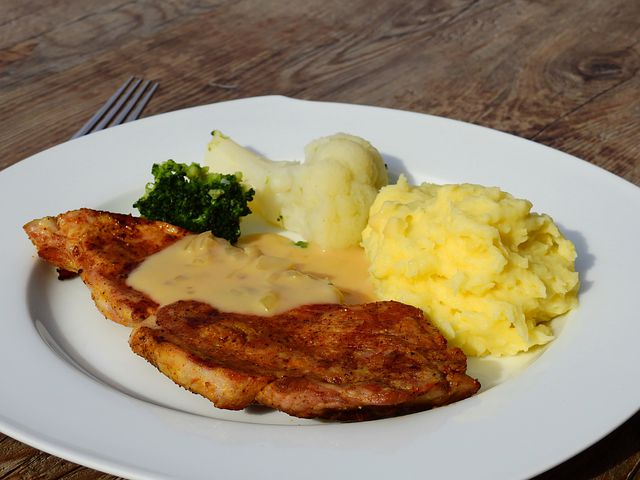
Substitute potatoes with cauliflower! Cauliflower rice is also delicious. Grill purple and white cauliflower with broccoli florets, don’t forget to add sauteed garlic. This colorful cauliflower delight will be your new favorite party starter. 1 cup of cooked cauliflower will contain 19 mg of sodium, 176 mg of potassium, and 40 mg of phosphorus. Apart from being kidney friendly, cauliflower is rich in folate, fiber, vitamins K, C, and B vitamins.
Do you love munching on fresh cucumbers?
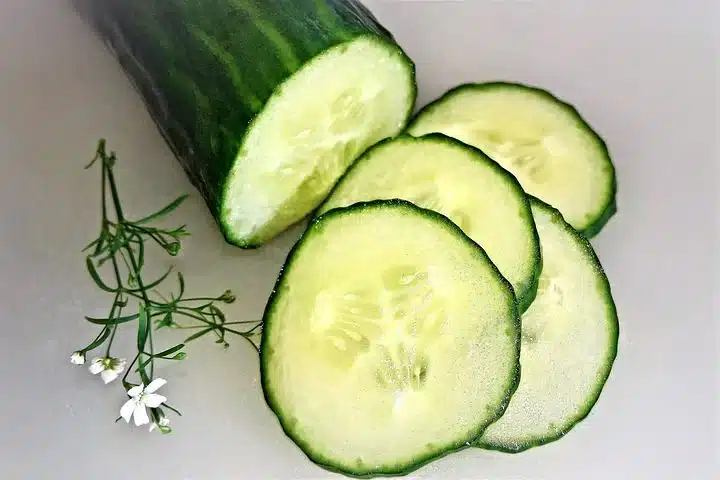
Let’s add another crunch enhancer to your renal diet. Pickled cucumbers or cucumber kimchi won’t be that great for your kidneys because of their high salt content. Raw cucumbers can cleanse your kidneys and regulate uric acid levels in the body. It will keep you away from kidney stones. Cucumbers are known to counteract the harmful effects of a high sodium diet.
One cucumber contains almost 3 mg of sodium, 193 mg of potassium and about 30 mg of phosphorus. Cucumbers are 96% water. Folks with early-stage kidney disease must limit this food as it may overload your kidneys to get rid of the extra fluid. Same goes for melons, honeydews and cantaloupes.
You also might want to limit your protein intake as damaged kidneys cannot metabolize protein that easily. That said, end-stage renal diseases require a protein rich diet. If you’re undergoing dialysis then you can safely have a few fatty fish like salmon, mackerel, tuna, herring, and sardines. Sear them until crisp to make them irresistibly delicious. They will give some amazing Omega 3 fatty acids that have been studied to reduce blood pressure and inflammation.
Is radish your thing? What about turnips?
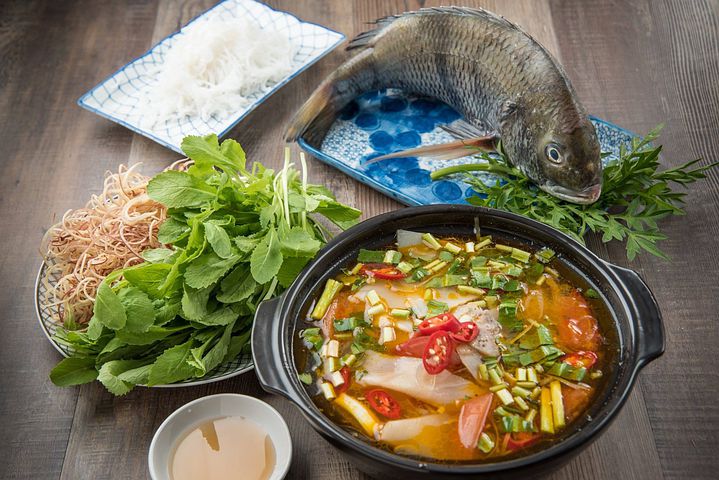
Turns out your kidneys love them both. They make perfect winter soups and delicious salads. One cup of radishes contains 23 mg of sodium, 135 mg of potassium, and 12 mg of phosphorus. On the contrary, half a cup of cooked turnip contains about 12 mg sodium, 138 mg of potassium, and 20 mg of phosphorus.
These root vegetables are rich in antioxidants and nutrients. Studies show that radishes can reduce your risk of heart disease and cataracts too.
Searching for a succulent side dish?
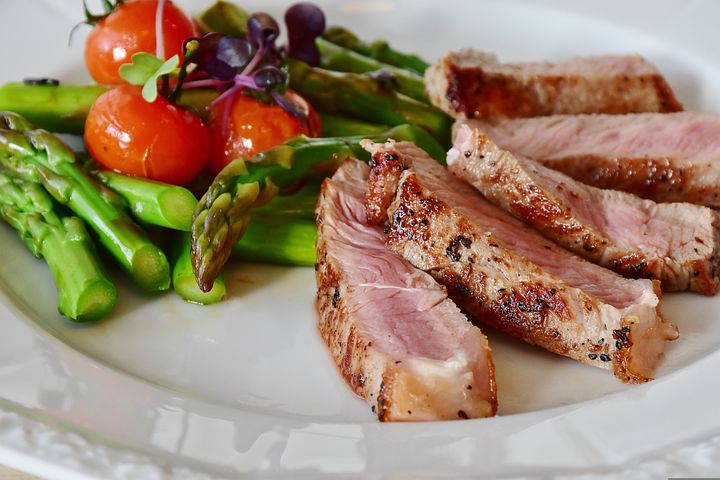
Try the classic roasted asparagus with lemon juice. It’s really simple and flavorful. Nobody thinks of asparagus to be a powerhouse of nutrients, but it is. Soluble and insoluble fiber, folate, antioxidants, and vitamin C reduce the risk of heart disease, cancer, and diabetes. 1 cup of cooked asparagus contains about 12 mg of sodium, roughly 201mg of potassium, and just over 48 mg of phosphorus.
It may have a bit of potassium but they work fine for early stages of chronic kidney diseases and diabetic neuropathy cases. The same goes for summer squash.
Now let’s quickly see what you should absolutely avoid.
All fruits are considered healthy, a few of them are notoriously dangerous for your kidneys. Let’s start with bananas. They are high in potassium. 1 medium-sized banana contains 450 mg of potassium. But is banana your favorite smoothie ingredient? Swap it with some tropical fruit like pineapple. It has less potassium and is well tolerated by your kidneys. The same is the case with avocados.
A single avocado contains 975 mg of potassium. Despite being touted for their innumerable health benefits, staying away from this creamy fruit will be in your best interest. Other potassium-dense foods like dates, prunes, apricots, and raisins should also be out of your kitchen. Starfruit also has been studied to cause acute kidney injury, so stay away from this tangy fruit, too.
Thinking of going grocery shopping and revamping your pantry? Hold on a minute. Before you step out we have more foods that can help your kidneys. Read about these 13 foods that make your Kidneys healthy or nine foods that are destroying your unhealthy kidneys.
